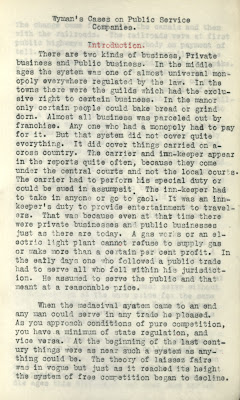Two new exhibits are open in the Riesenfeld Rare Books Research Center this academic year.
The first commemorates the 100th Anniversary of the American Law Institute (ALI) and the contributions of Law School faculty to ALI’s important work. Created by ALI, the exhibit has traveled to Michigan, Texas, the University of Chicago, and several other law schools. The second exhibit, "Jewels of the Collection: Treasures of the Riesenfeld Rare Books Research Center" celebrates the depth and richness of the Law Library's special collections.
Founded in 1923, the Institute has endeavored through its publications to reduce the uncertainty and complexity of American law and to improve the administration of justice. Its influential publications include the Restatements, Principles and Model Acts and Laws. These have provided useful guidance for generations of judges, lawyers, and legislators across many fields of American law.
The exhibit documents a selection of contributions of Law School faculty to ALI projects, tracing back to the tenure of Dean Everett Fraser (1920–1948). Faculty involvement was particularly promoted under the deanship of Professor Robert Stein (‘61) (1979–1994). Stein himself has served on ALI's governing Council, on the Drafting Committee for the Uniform Commercial Code, and has been an Adviser on the Restatement of the Law Second, Property and Restatement of the Law Third, Trusts. The UCC, a comprehensive set of laws governing commercial transactions in the United States, has been uniformly adopted by the states and represents one of ALI’s most significant achievements.
Many other Law School faculty members have also played prominent roles in creating ALI publications, serving as Reporters, Advisers, or members of Consultative Groups for Restatements of the Law, Model Codes and Principles.
The work of the American Law Institute, a cornerstone of American jurisprudence, will remain beneficial long beyond its centenary. In the same way, Minnesota faculty will continue to make important contributions to ALI’s mission.
The second exhibit, "Jewels of the Collection: Treasures of the Riesenfeld Rare Books Research Center," showcases the depth of the Arthur C. Pulling Rare Books Collection. This centerpiece of the Library's special collections features more than 35,000 volumes printed between the fifteenth century and today. The new exhibit introduces the treasures found in the Riesenfeld Center and highlights its diverse strengths. Some of the exhibit treasures have been selected as important contributions to law and history, or as landmark “firsts” of legal literature. Others are notable for their associations with famous authors and owners, or as unique artifacts and works of art. The items reflect a historical legal legacy that is both national and global in its scope.
The exhibit, "Jewels of the Collection: Treasures of the Riesenfeld Rare Books Research Center," was curated by Ryan Greenwood and Joy Brown.
For more information about the exhibits or to schedule a tour, please contact Ryan Greenwood (rgreenwo@umn.edu; 612-625-7323).










